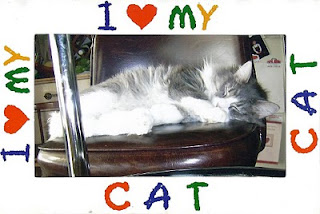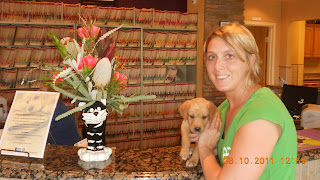Thank you for choosing Pekin Veterinary Clinic to care for your new pet. In order to ensure that your puppy grows up to be a healthy adult, it is important to provide the best “preventative medicine” possible. Below is a list of all the procedures and vaccinations we recommend for your new puppy. We will be happy to remind you when the annual exam and vaccinations are due.
DHPP VACCINATION: A combination vaccine to protect against four very contagious viral infections, including parvo virus. Boosters are given every 3-4 weeks until your puppy is 16 weeks. After the puppy series, your dog will require a booster at 1 year, then every 3 years thereafter.
LEPTOSPIROSIS VACCINATION: A series of two vaccines to help protect against a potentially fatal bacterial infection that can also affect humans. After the puppy series, your dog will require an annual booster. This bacterium thrives in moist areas and is spread by the urine of carrier animals, including most wild and domestic mammals.
BORDETELLA VACCINATION: A vaccine (or series of 2 for injectable) to help protect your puppy from kennel cough. This vaccine is recommended for any puppy that will be interacting with other dogs, such as at groomers, puppy classes, kennels or dog parks. Your dog will then require an annual booster.
RABIES VACCINATION: This vaccine is required by law and is given after 12 weeks of age, followed by a 1 year booster then every 3 years thereafter.
LYME VACCINATION: A series of 2 vaccinations in addition to vigilant tick prevention to help prevent Lyme disease. This vaccine is recommended for dogs with tick exposure.
VACCINE REACTIONS: If you notice a reaction such as hives, vomiting and/or swelling of the face shortly after your puppy received a vaccine, please contact us immediately.
FECAL EXAM: Intestinal parasites are very common in new puppies and are not only harmful to your pet, but some are contagious to people. Therefore, we recommend at least 2 fecal exams to identify any internal parasites your new puppy may have.
DEWORMING TREATMENTS: Your puppy will receive a broad spectrum of deworming medication every 2 weeks for a total of 4 treatments. Based on the results of your puppy’s fecal exam, you may need to treat with additional medications.
FLEA AND TICK PREVENTION: Fleas and ticks are not only a nuisance to you and your pet; they can also carry diseases and cause skin allergies. We recommend using monthly, year round preventive medication and annual testing for tick borne diseases. We can help you decide which medication will work best for your pet.
HEARTWORM PREVENTION: Heartworm disease is an easily preventable disease, using a monthly, year round preventive medication. Heartworm disease is endemic in our area and is carried by mosquitoes. We require an annual blood test which also screens for tick borne diseases.
MICROCHIPPING: A microchip is a permanent form of identification for your pet. If your pet gets lost or injured, the microchip number will allow animal control, shelters, veterinarians and good Samaritans to locate and reunite you with your pet.
SPAY/NEUTER: There are multiple medical and behavioral advantages to spaying or neutering your pet. Recommended age is 5-7 months. Pre-surgical blood work is recommended prior to this surgery to serve as a baseline as well as being safe for anesthesia. Discounts are given to those pets that are spayed/neutered prior to 8 months of age.
DIET: Your puppy is growing rapidly and needs a high quality puppy growth formula. At six months, you should switch your puppy over to adult dog food. It is important not to overfeed in order to maintain a lean body condition during growth. This will encourage optimal joint and bone health especially in large breeds.
DENTAL HEALTH: Now is a great time to get your puppy accustomed to the tooth brush. We recommend daily brushing for your pet. Please ask us for a demo on how to brush your puppy’s teeth!
THE TEEN YEARS:
The teen years can run from 1-2 years old. We recommend vaccinations based on your dog’s specific risk factors and lifestyle. Annual exams also include a wormer/fecal, heartworm/lyme blood test, body weight and a physical exam. The main vaccinations are DHPP, lepto, bordetella, and rabies vaccination. Ideally a complete blood count and organ screening blood test would be done for baseline values for future reference.
THE ADULT YEARS:
The adult years can run approximately 3-7 years. These years end when the dog starts experiencing some aging issues. Vaccination is done according to the risk factors/lifestyle of your dog. Annual exams include a fecal, heartworm/lyme blood test, body weight and a physical exam including a thorough dental exam.
THE SENIOR YEARS:
In the senior years, a fecal and annual physical exam including a thorough dental exam should be done. In most giant breeds a General Senior Profile (blood work) is considered at 4 plus years of age. In most large breeds of dogs, the start time for this blood work is around 6 years. The smaller dogs may begin their adult samples after age 7 or 8. Senior work ups should include a complete blood count, chemistry evaluation (including kidneys, liver, pancreas, etc.) urinalysis, a thyroid test, fecal, body weight and heartworm/lyme test. Vaccination is done according to the risk factors and lifestyle of your dog.
We look forward to getting to know you and your new pet. If you have any questions or concerns about your pet, please feel free to contact us.




























